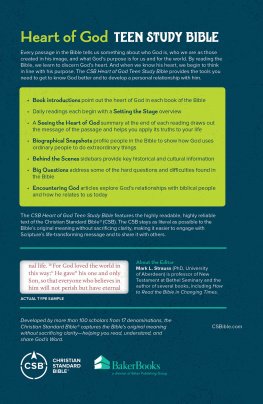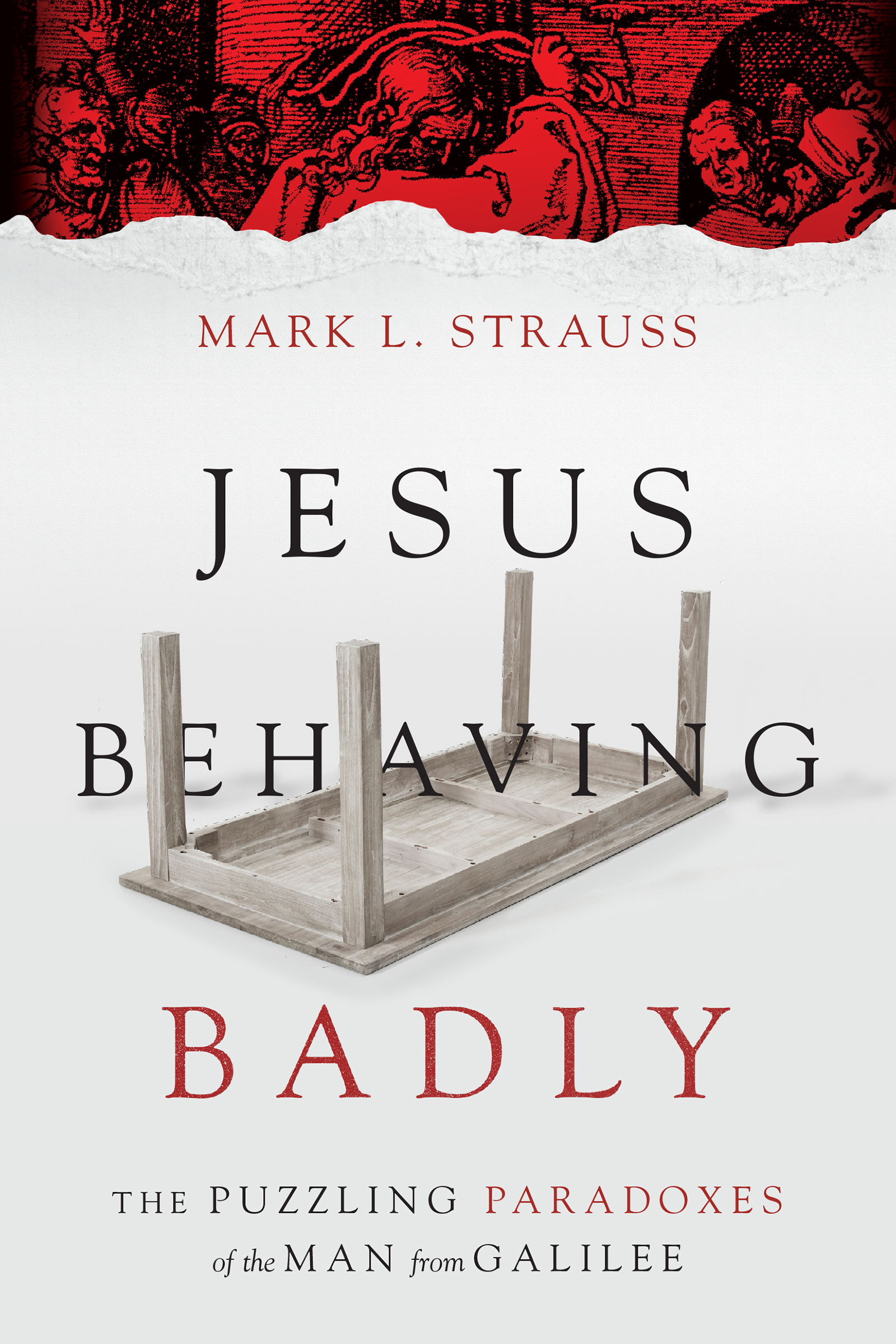To Roxanne, Daniel, Jamie and Luke
Contents
- 1 -
Everybody Likes Jesus
I am a Jew, but I am enthralled by the luminous figure of the Nazarene.
Albert Einstein
I am a historian, I am not a believer, but I must confess as a historian that this penniless preacher from Nazareth is irrevocably the very center of history. Jesus Christ is easily the most dominant figure in all history.
H. G. Wells
I like your Christ, I do not like your Christians. Your Christians are so unlike your Christ.
Mahatma Gandhi
T he Doobie Brothers famously sang Jesus is just alright with me, and that about sums it up. Just about everybody likes Jesus. Muslims like Jesus. They call him by his Arabic name, Isa, and view him as a great prophet, just a little behind Mohammad in power and authority. Jesus is particularly revered for his power to heal. It was later Christians, Muslims claim, who distorted the truth and falsely (and blasphemously) turned him into a deitythe Son of God.
Followers of the New Age love Jesus. They consider him to be one of the most enlightened people who ever lived, someone truly in touch with his divine self. By following his way, people can attain true enlightenment, their deity within. This is the yoga, tofu and wheat-grass Jesus.
Jewsat least those who study him historicallylike Jesus. They view him as a reforming Jewish prophet who opposed the pride and hypocrisy of the ruling elite but tragically got himself crucified by the Roman authorities.
Even most atheists like Jesus. To many he was a good man and social reformer who preached that people should love one another and turn the other cheek. But the power-hungry church transformed this humble prophet into a divine miracle worker and Son of God, devising the far-fetched notion that his death paid the penalty for peoples sins.
Yes, almost everyone likes Jesusat least the particular version they choose to believe in. This is the kind and gentle Jesus. The Mr. Rogers lookalike who shows up on Sunday school flannelgraphs laughing and smiling with children on his lap and a twinkle in his eye. This is the love your enemies Jesus who always turns the other cheek. This is the good shepherd Jesus, striding confidently back to the flock with the little lost lamb contentedly draped across his shoulders.
Yet the New Testament itself paints a darker and more complex picture of Jesus. After all, how could the Mr. Rogers Jesus make more enemies than friends over the course of his life? How could he stir up the whole religious establishment to conclude that he was dangerous and must be eliminated? How could he have gotten himself arrested by the Roman authorities and executed in perhaps the most inhumane manner ever devised?
The record shows that Jesus said and did some things that appear puzzling at best and downright contemptible at worst. He told people to hate their families, to cut off body parts, and to eat his flesh and drink his blood. He demanded perfection from his followers and warned that most people were straight on their way to hell (Mt 5:48; 7:13-14). He said that those who did not behave themselves would be cut up into little pieces (Mt 24:51//Lk 12:46).
Jesus called those who werent Jewish dogs and upheld the special status of the Hebrews in a way we would call ethnocentric if not racist (Mk 7:24-30//Mt 15:21-28). With no women among the twelve apostles, he looks pretty chauvinistic. He apparently had anger issues, cursing a fig tree because it didnt have any fruit on it, and driving merchants out of the temple with a whip (Mk 11:12-24//Mt 21:12-22; Lk 19:45-47). He sent two thousands pigs to their death in the sea (Mk 5:1-20//Mt 8:28-34//Lk 8:26-39).
One person who didnt think Jesus was so great after all was English philosopher Bertrand Russell. In his famous essay Why I Am Not a Christian, Russell claimed that Jesus was mistaken when he predicted that he would return within a generation, and unethical when he cursed a fig tree and caused the death of thousands of pigs. He found Jesus teaching about hell particularly reprehensible: There is one very serious defect to my mind in Christs moral character, and that is that He believed in hell. I do not myself feel that any person who is really profoundly humane can believe in everlasting punishment.
We tend to overlook Jesus bad behavior and instead create a Jesus who is more palatableone just like us. Albert Schweitzer pointed this out over a century ago in his classic volume The Quest of the Historical Jesus. Schweitzer wrote about the so-called first quest for the historical Jesus, when eighteenth- and nineteenth-century rationalistic scholars tried to find the real Jesus behind the supposedly naive and embellished accounts in the Gospels.
Schweitzer showed that these authors tended to ignore the context of first-century Judaism. They transformed Jesus from a wild-eyed apocalyptic prophetthe real Jesus according to Schweitzerinto a nineteenth-century gentleman and philanthropist. For them, Jesus was an inoffensive preacher proclaiming the fatherhood of God and brotherhood of man. In other words, Jesus became the mirror through which they saw themselves.
The same thing happens today. Soft-spoken Sunday school teachers tell stories in which Jesus appears a lot like Santa Claus, speaking kindly to the children and telling them to obey their parents. Punch and cookies await if they will listen and behave. At a mens conference Jesus is a mans man, with callused hands and burly muscles (a carpenter, after all!), who clears the temple like a linebacker. No one would mess with him today.
In a Chinese church, the picture of Jesus on the wall portrays him as Asian. In much of the Western world, he is white, with blond hair and blue eyes. Enter an African American church, and you might see a black Jesus.
Each year when I teach the Gospels, I open my first class by showing a variety of film clips from movies about Jesus. An amazing diversity of films have been produced over the years. From the somber, aloof and stilted Jesus of The Greatest Story Ever Told to the clown-faced folk singer of Godspell, to the conflicted, self-doubting and all-too-human Jesus of The Last Temptation of Christ, to the laughing, down-to-earth Jesus in Jesus (1999) who gets into a water fight with his disciples!
Why such diverse portraits of the man from Galilee? By almost any account Jesus is the most influential person in human history. About a third of the earths population identifies as Christianfollowers of Christ. Even our calendars identify his birth as the center point in human history. Everything before him is B.C. , before Christ. Everything after is A.D. , anno Domini, the year of the Lord. Though Jesus is the most talked about, written about, argued about and revered person on the planet, he is also the most enigmatic. Thousands of books have been written asking the question, who was this Jesus of Nazareth?
The question is simple but the answer obviously is not. One of the reasons for this is because the New Testament itself presents a complex and puzzling picture of Jesus. At times Jesus words are difficult to understand, and scholars scratch their heads over them. What did Jesus mean when he told a man to Let the dead bury their own dead (Lk 9:60) or that Everyone will be salted with fire (Mk 9:49)? What is the blasphemy against the Holy Spirit, and why is it a sin that cannot be forgiven (Mk 3:28-29//Mt 12:31-32)? What does it mean that violent people are taking the kingdom of God by force (Mt 11:12)? These are strange and puzzling sayings.













